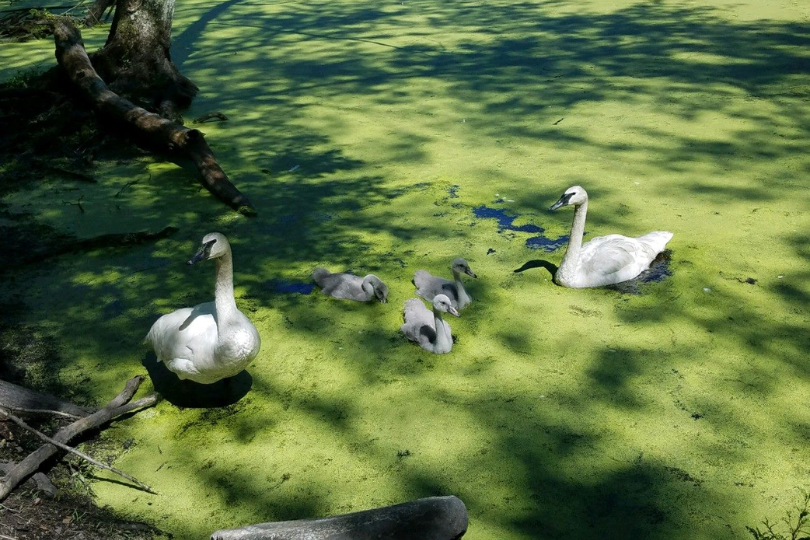Trumpeter Swan
Cygnus buccinator
Class: Aves Order: Anseriformes Family: Anatidae
Size
Size: 4.5-5.5 ft long
Weight: 15-30 lbs
Lifespan
20-30 years
Diet
Aquatic plants, grass
Habitat & Range
Lakes, rivers, large shallow ponds of central and western North America
Interesting Facts
Trumpeter swans are the largest species of waterfowl native to the United States, and their wingspan can exceed 2 feet in length.
These swans are monogamous and mate for life. Females lay 4-6 eggs at a time. Baby swans, known as cygnets, can swim within 2 days of hatching.
Trumpeter swans are known for their low, bugle-like call. In addition to various calls, they communicate through head bobbing and other physical movements.
Many of the swans in the US are mute swans. Mute swans are non-native to North America and considered invasive. You can distinguish them from trumpeters by their bill color. Adult trumpeter swans have black bills, and adult mute swans have orange bills.



Conservation Status
Least Concern
Threats
Trumpeter swans were once close to extinction in the United States. By the 1930s, fewer than 100 trumpeter swans remained in the US. However, this species has greatly recovered due to conservation projects. Southwick’s Zoo and EARTH Limited are proud partners of the Iowa Department of Natural Resources’ Trumpeter Swan Restoration project. The goal of this project is to reintroduce these swans to their native habitat in Iowa. Learn more about this project.
